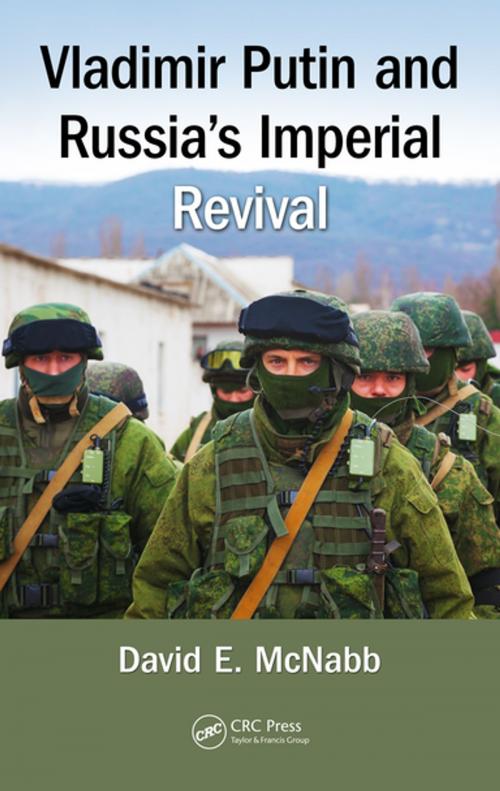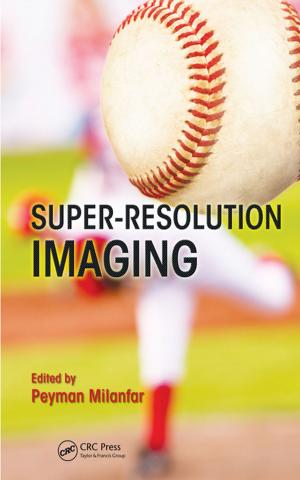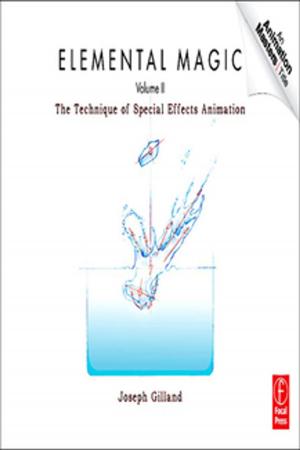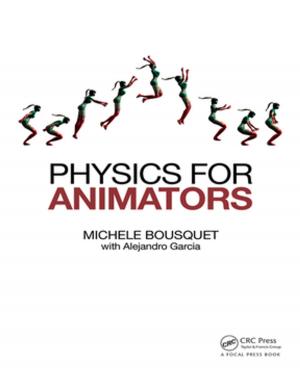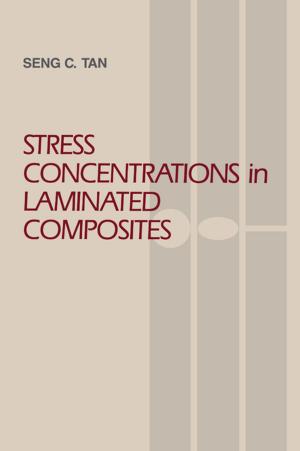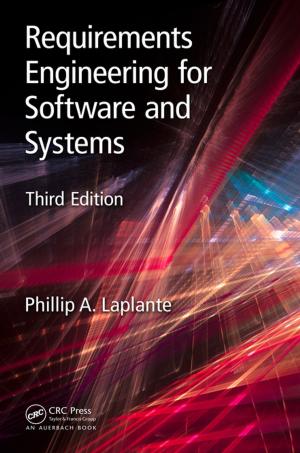Vladimir Putin and Russia's Imperial Revival
Nonfiction, Social & Cultural Studies, Political Science| Author: | David E. McNabb | ISBN: | 9781498777490 |
| Publisher: | CRC Press | Publication: | February 12, 2016 |
| Imprint: | Routledge | Language: | English |
| Author: | David E. McNabb |
| ISBN: | 9781498777490 |
| Publisher: | CRC Press |
| Publication: | February 12, 2016 |
| Imprint: | Routledge |
| Language: | English |
Discerning the early stages of the rebirth of a new Russian empire from the ashes of the Soviet Union, Vladimir Putin and Russia’s Imperial Revival argues that Russia’s recent overtly aggressive actions and foreign policy doctrines have signaled a renewal of the Cold War. At the least, Russia’s actions represent the potential for renewal. This book explains these developments in a historical context.
The book begins by describing Russia’s initial policy of rapprochement after the collapse of the Soviet Union and its development into a foreign policy of threatened or actual armed aggression. It identifies today’s Russia as a nation determined to re-establish itself as a political and military force. As a prominent figure in the development and continuation of its current foreign policy, Vladimir Putin plays a central role in the topics covered.
Previous literature often treats Putin as an individual phenomenon examining his connections to corruption or the secret police, but here David E. McNabb examines him as the latest in a long history of Russian despots who followed similar expansionist policies. He details some of the tactics Putin uses to instill fear and dominate political policies of republics newly independent from Russia. These tactics include the use of energy as a weapon, cyber terrorism, and military support for ethnic Russian separatists in other sovereign nations, most recently exemplified by Russia’s annexation of Crimea from Ukraine via armed invasion.
In an attempt to demystify Russia’s re-emergence as an international political force, Vladimir Putin and Russia’s Imperial Revival grounds its analyses in history. It explores as far back as the establishment of the first Russian empire, and regards Putin as a leader determined to establish a fifth imperial incarnation. It provides a nuanced understanding of how Russia arrived at its current position through recent and distant internal and international events.
Discerning the early stages of the rebirth of a new Russian empire from the ashes of the Soviet Union, Vladimir Putin and Russia’s Imperial Revival argues that Russia’s recent overtly aggressive actions and foreign policy doctrines have signaled a renewal of the Cold War. At the least, Russia’s actions represent the potential for renewal. This book explains these developments in a historical context.
The book begins by describing Russia’s initial policy of rapprochement after the collapse of the Soviet Union and its development into a foreign policy of threatened or actual armed aggression. It identifies today’s Russia as a nation determined to re-establish itself as a political and military force. As a prominent figure in the development and continuation of its current foreign policy, Vladimir Putin plays a central role in the topics covered.
Previous literature often treats Putin as an individual phenomenon examining his connections to corruption or the secret police, but here David E. McNabb examines him as the latest in a long history of Russian despots who followed similar expansionist policies. He details some of the tactics Putin uses to instill fear and dominate political policies of republics newly independent from Russia. These tactics include the use of energy as a weapon, cyber terrorism, and military support for ethnic Russian separatists in other sovereign nations, most recently exemplified by Russia’s annexation of Crimea from Ukraine via armed invasion.
In an attempt to demystify Russia’s re-emergence as an international political force, Vladimir Putin and Russia’s Imperial Revival grounds its analyses in history. It explores as far back as the establishment of the first Russian empire, and regards Putin as a leader determined to establish a fifth imperial incarnation. It provides a nuanced understanding of how Russia arrived at its current position through recent and distant internal and international events.
